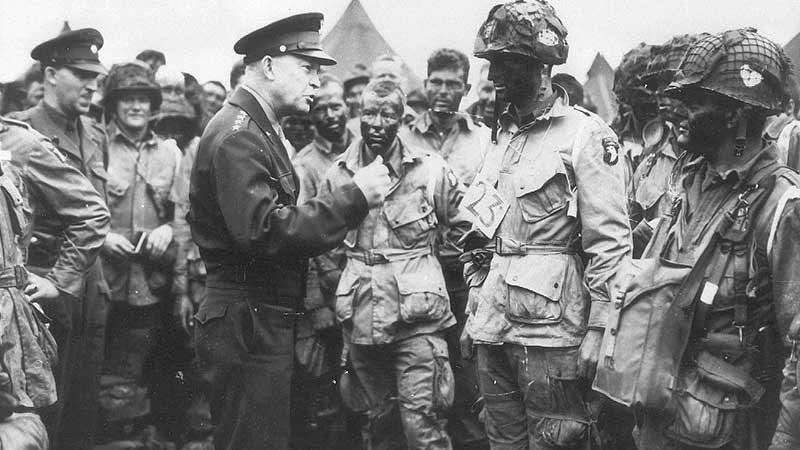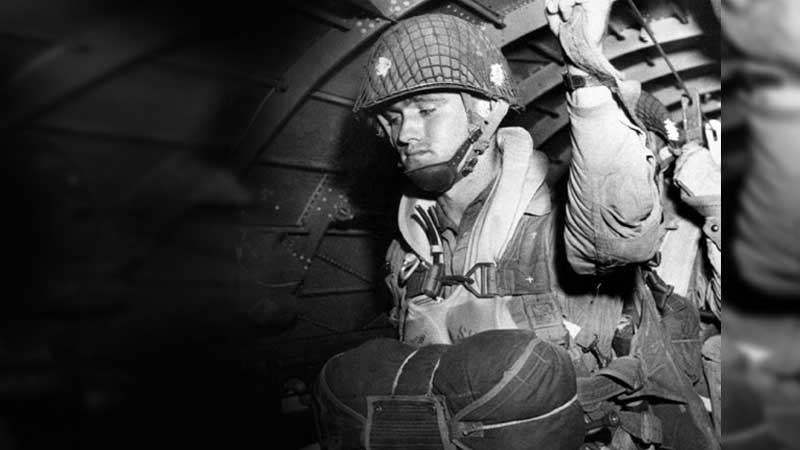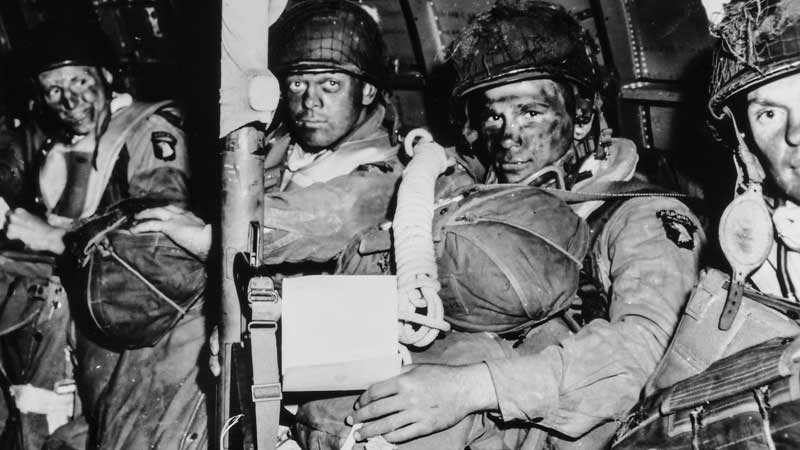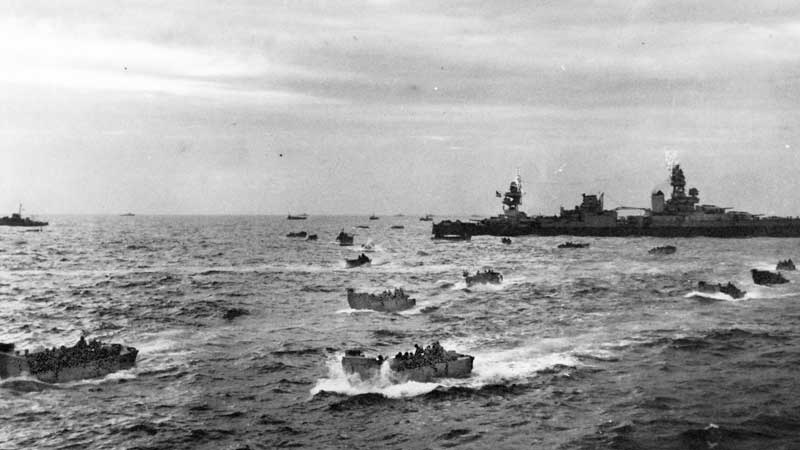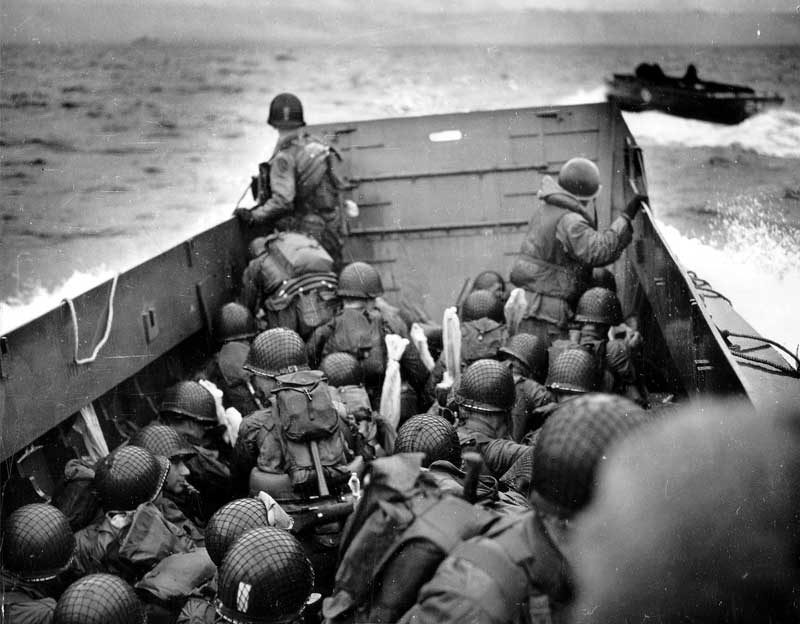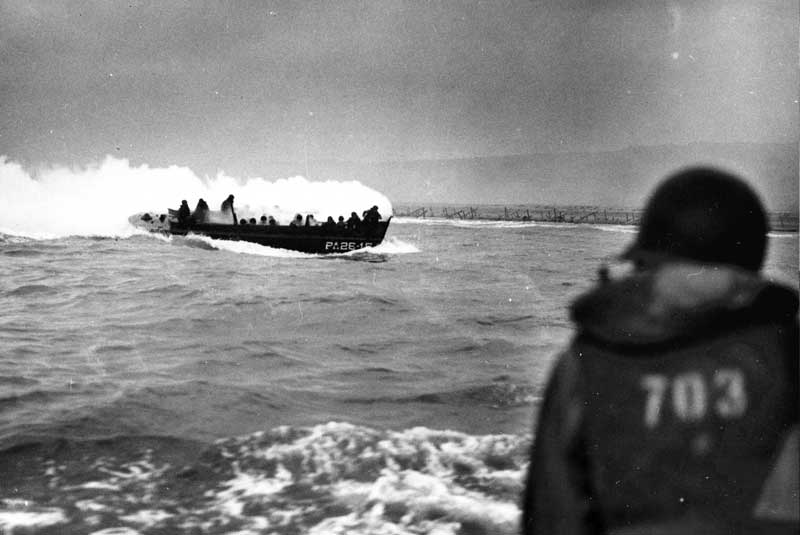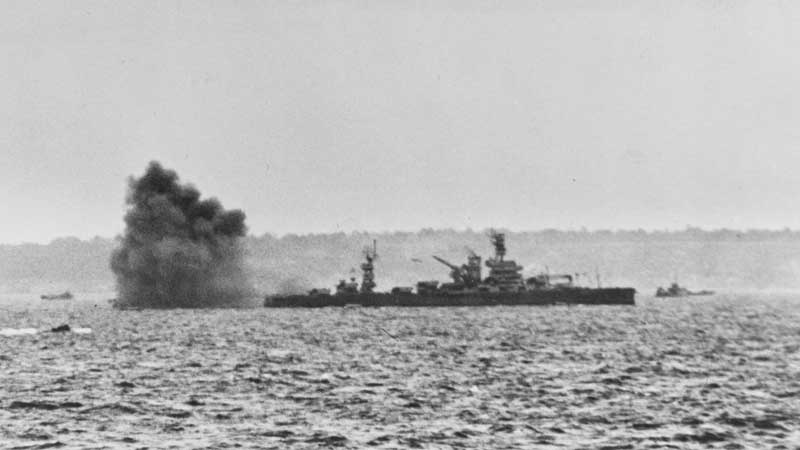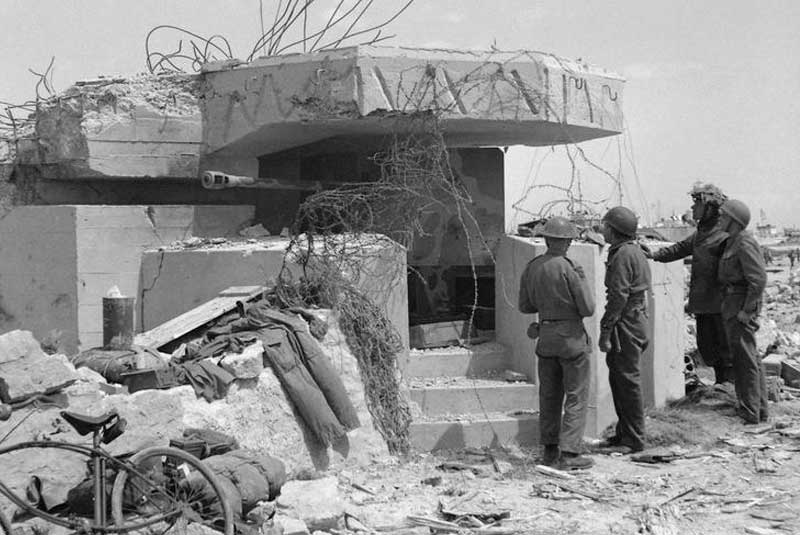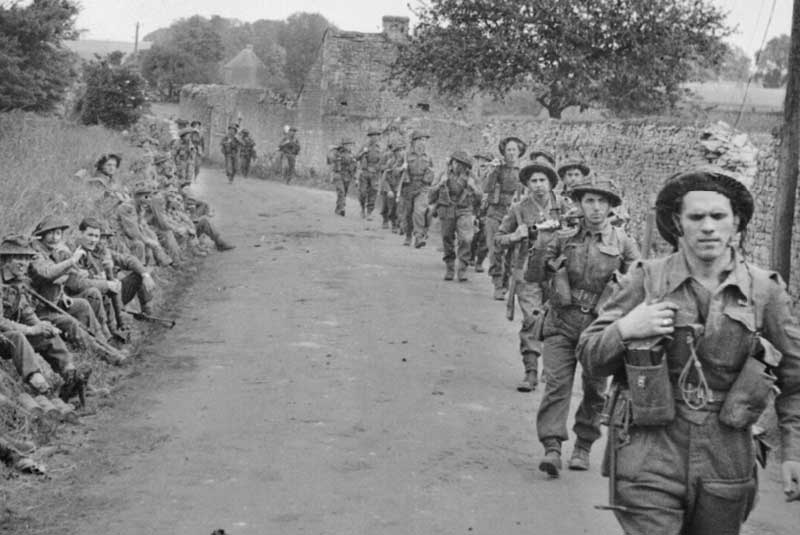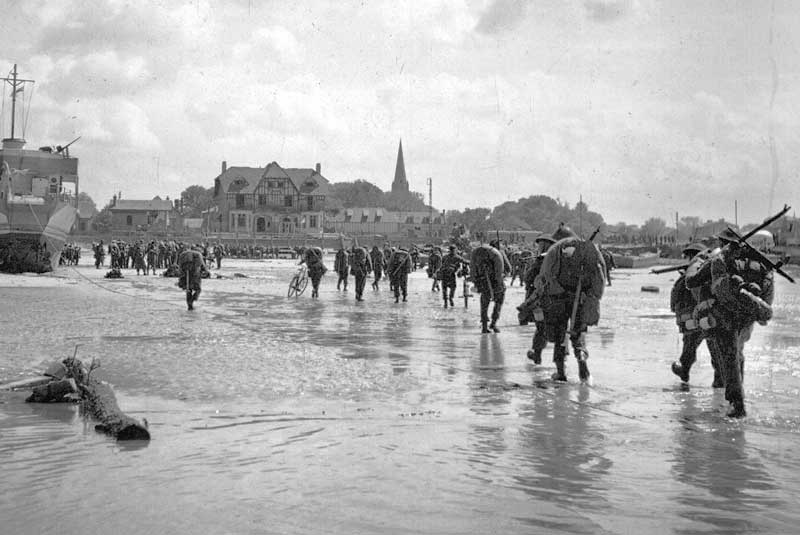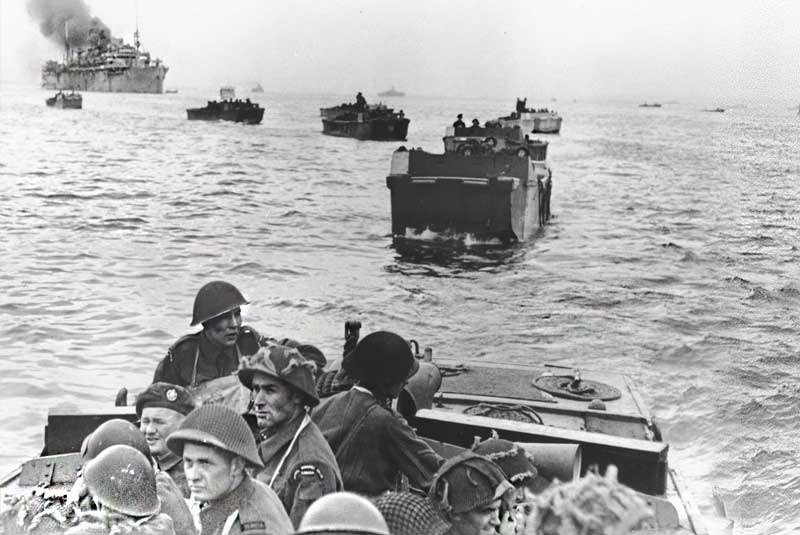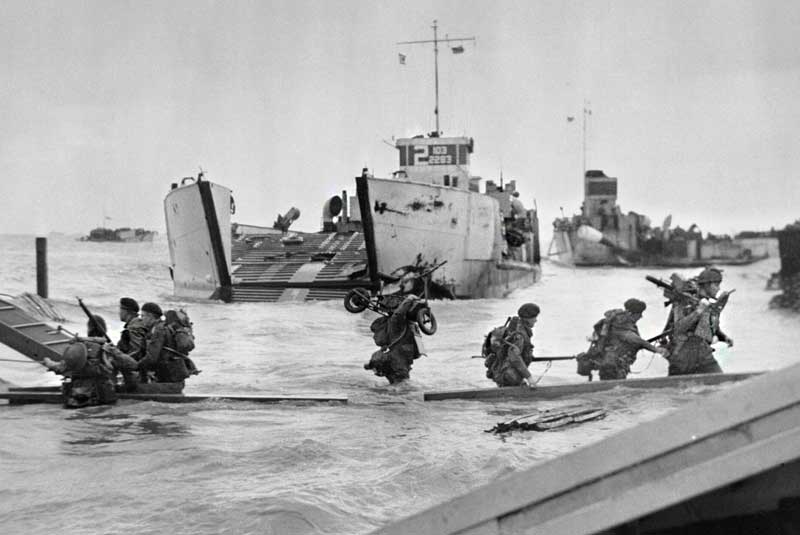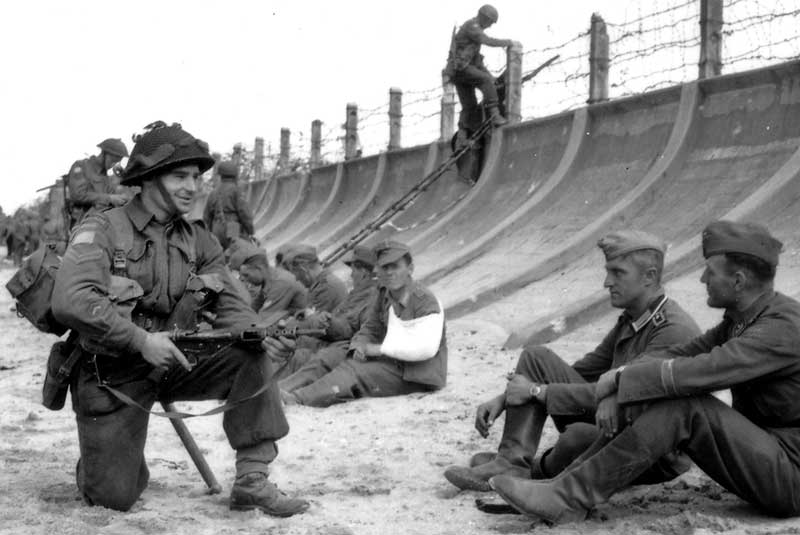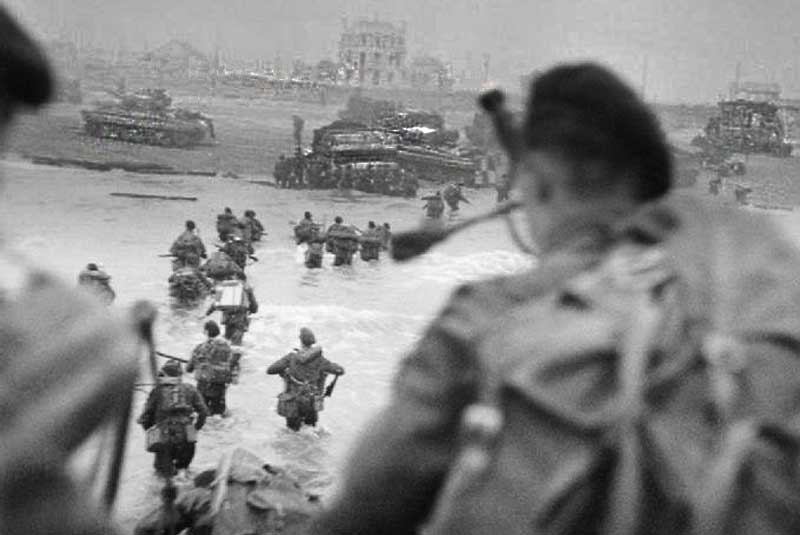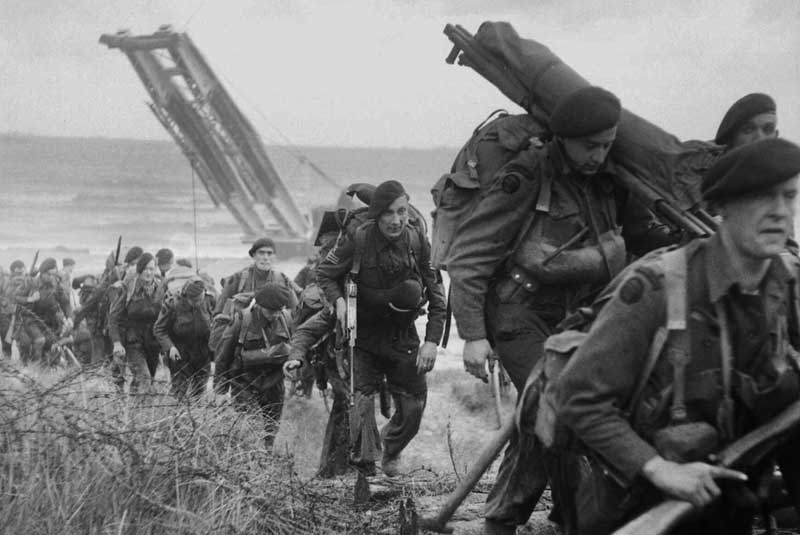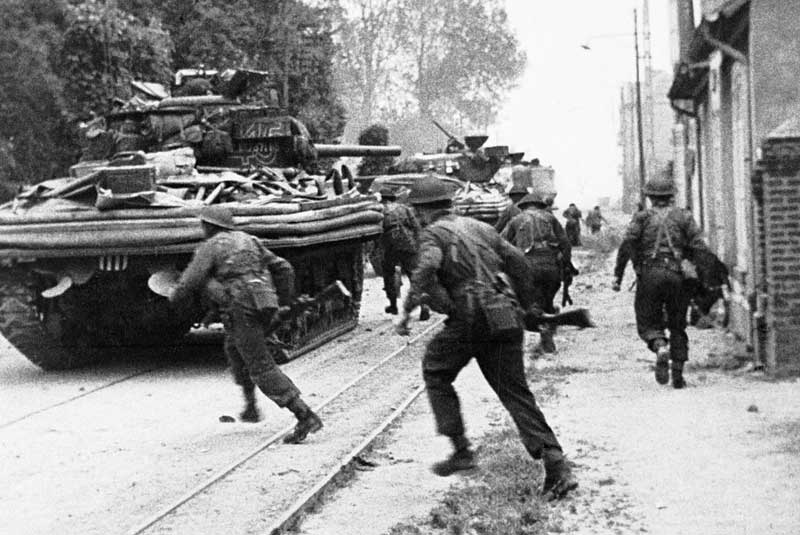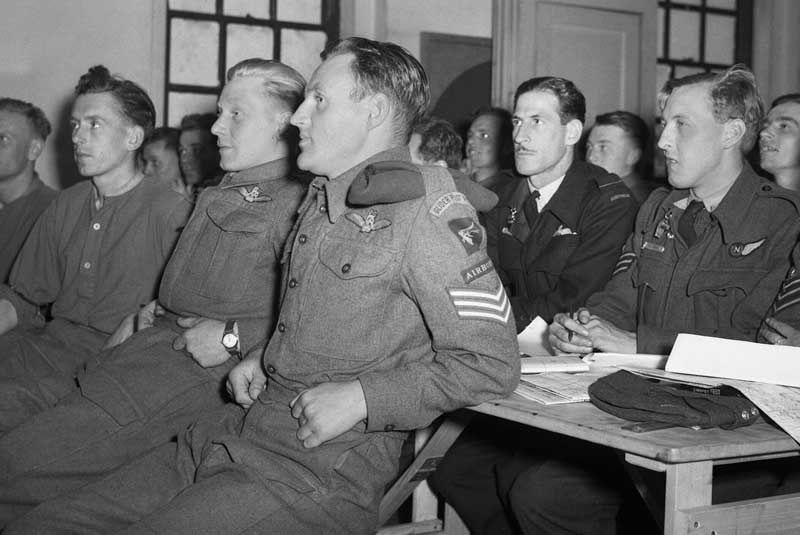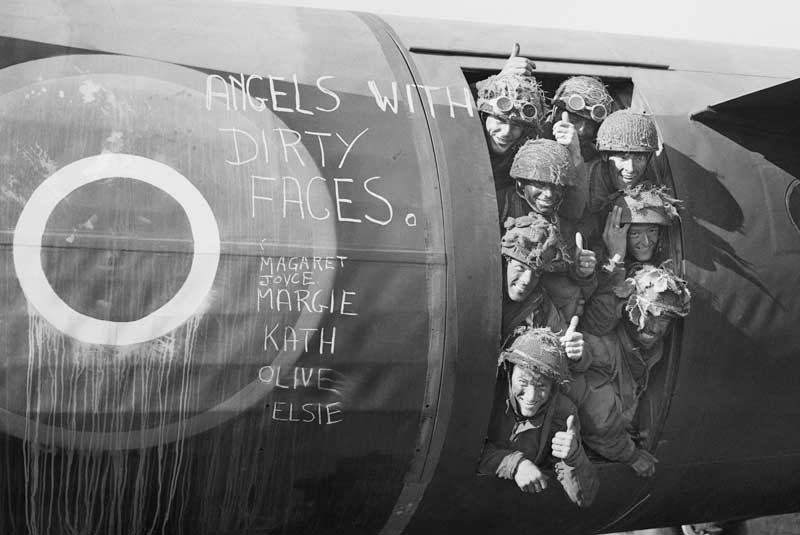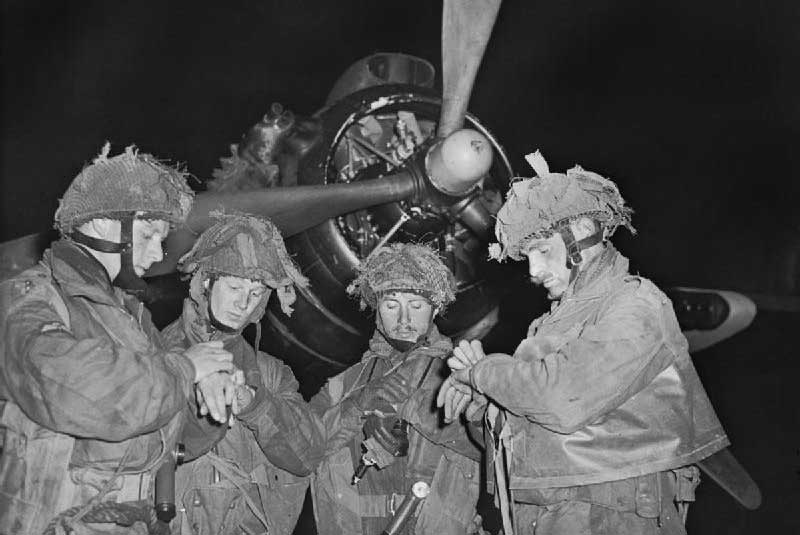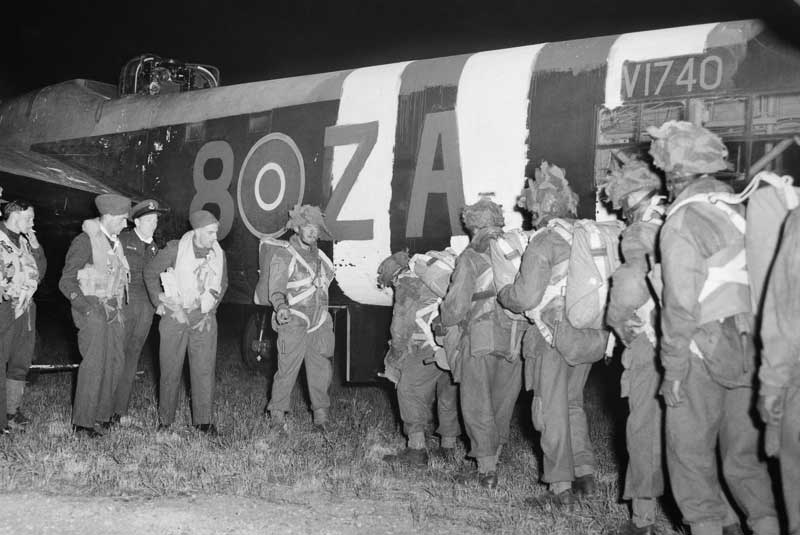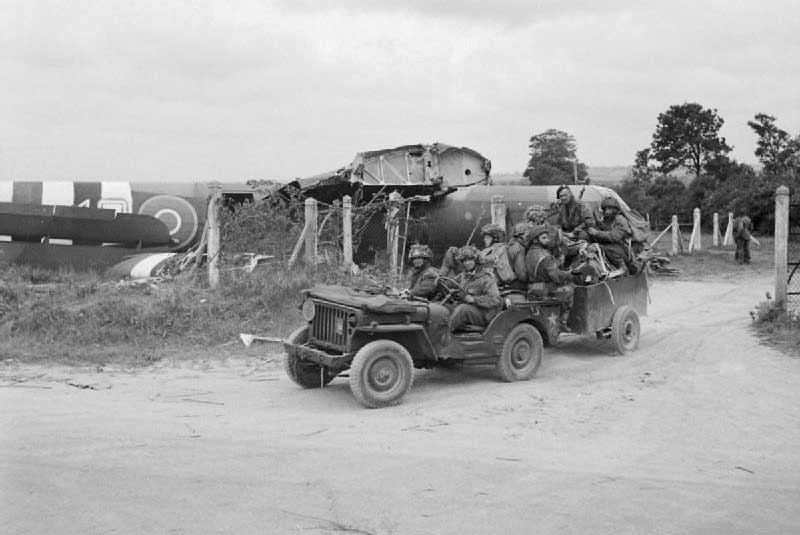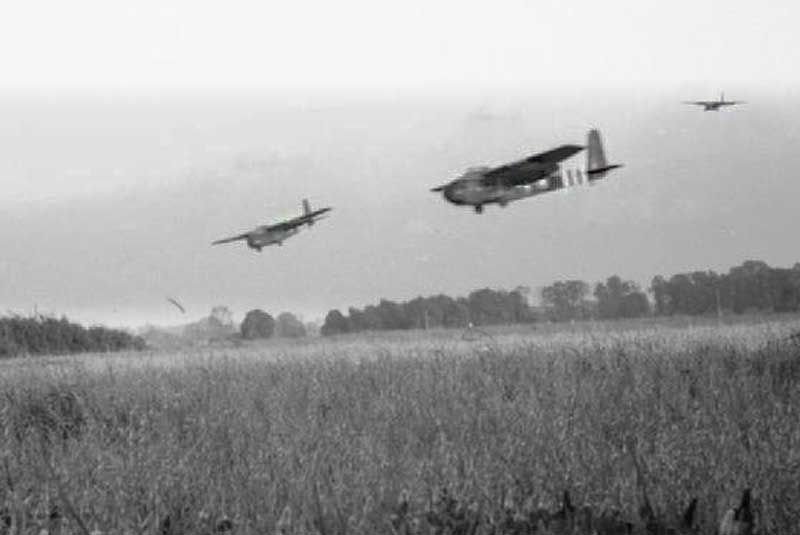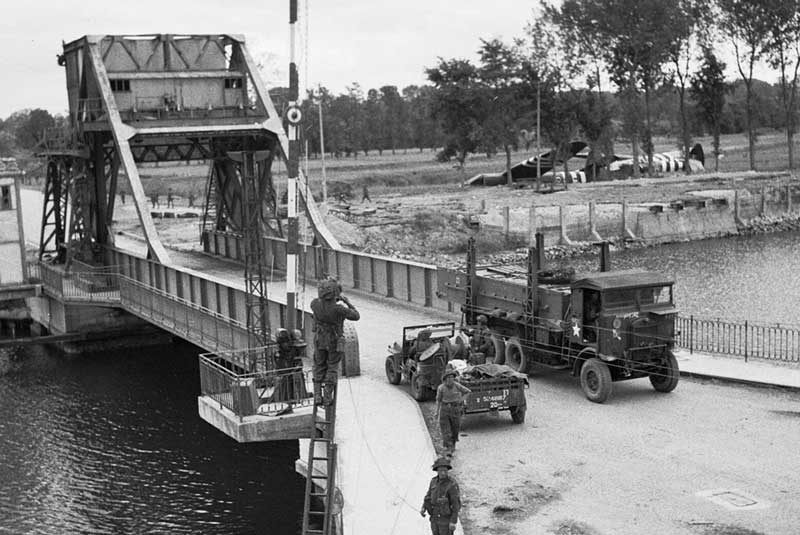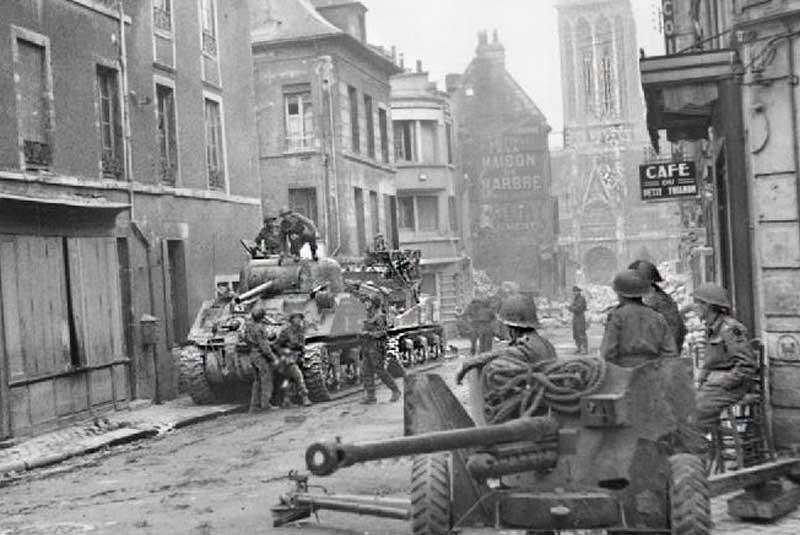H-HOUR
D-DAY HISTORICAL OVERVIEW
"We'll start the war from right here." Brig. Gen. Theodore Roosevelt Jr., Medal of Honor Recipient, upon discovering that he landed with his troops in the wrong place on Utah Beach, June 6, 1944.
Planning the Invasion
Allied planners spent years analyzing changing tides, perilous terrain, and German fortifications along the Atlantic Wall to figure out the best time and place to come ashore. In this video, Army University Press provides a in-depth look at the people, process and preparations that led up to the Normandy Invasion.
Allied planners spent years analyzing changing tides, perilous terrain and German fortifications along the Atlantic Wall to figure out the best time and place to come ashore. Even basic logistics were a nightmare. Over a million Soldiers had to be shipped to the United Kingdom, and then equipped and fed. Paying heed to Allied leadership from COSSAC to SHAEF, our film examines how the plan for one of the largest invasions in history was changing clear up to D-Day. Created in collaboration with the Combined Arms Support Command, the film outlines important Army doctrine such as the Military Decision Making Process, the Intelligence Preparation of the Battlefield and the Sustainment Preparation of the Operational Environment.
Phantom Force
Deception was a major part of the Allied campaign plan. To mislead the Germans into believing that the Pas de Calais — rather than the Cotentin Peninsula — would be the site of the invasion, Eisenhower's staff created a mythical 1st U.S. Army Group. Gen. George S. Patton, the American general the Germans most respected, was assigned to command the phantom army and saw to it that known enemy agents received information on the status of Patton's force. Components of the fictitious command indulged in extensive radio trafficking to signal to German intelligence analysts that a major military organization was functioning.
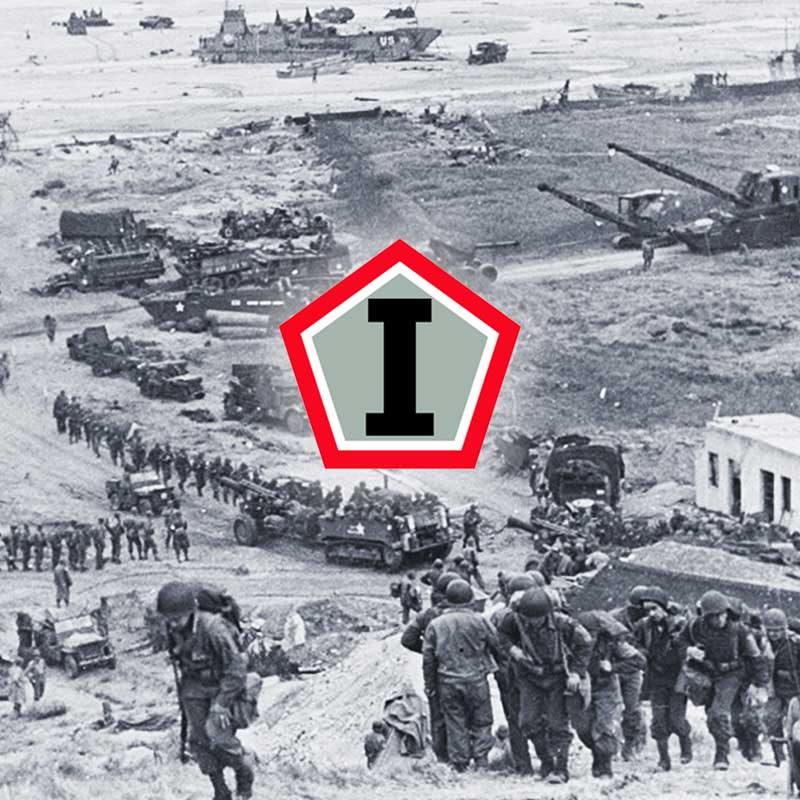
Ghost Army
The 1st U.S. Army Group's efforts are not to be confused with the deception tactics of the 23rd Headquarters Special Troops, also known as the Ghost Army. The unit, which was employed in the immediate aftermath of the Normandy invasion but has little relevance to D-Day itself, was recently awarded the Congressional Gold Medal.
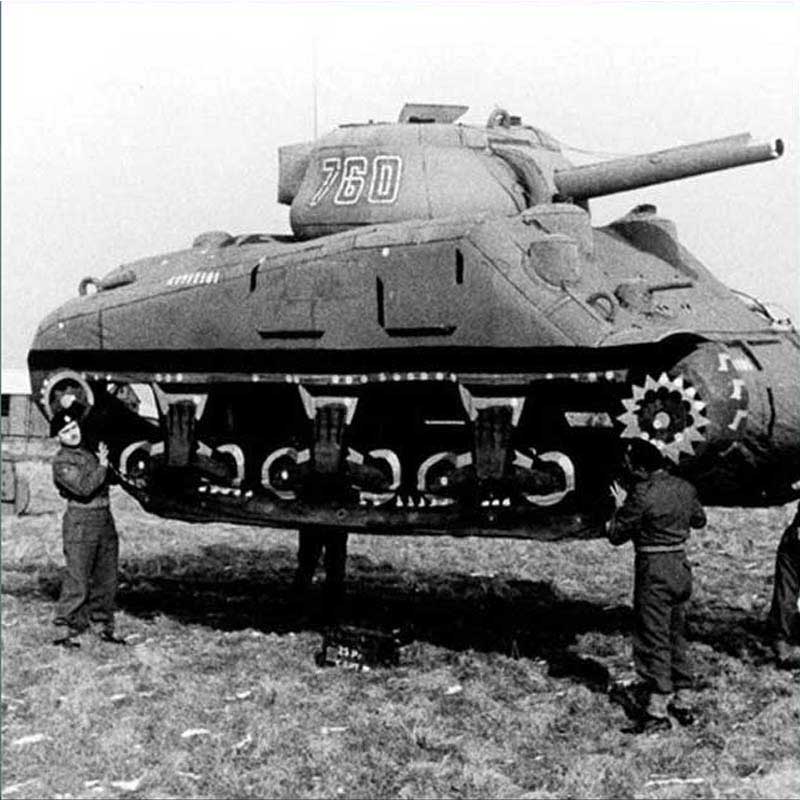
THE RESISTANCE
In support of D-Day, the French Resistance's primary utility was in the gathering of intelligence, the destruction of German logistical and communications capabilities such as railroads and telephone lines. The Allies understood the large-scale coordinated military action by the Resistance would probably not be possible prior to D-Day, but the British Special Operations Executive and the American Office of Strategic Services' Special Operations division did work closely with the Resistance in the lead up to D-Day.
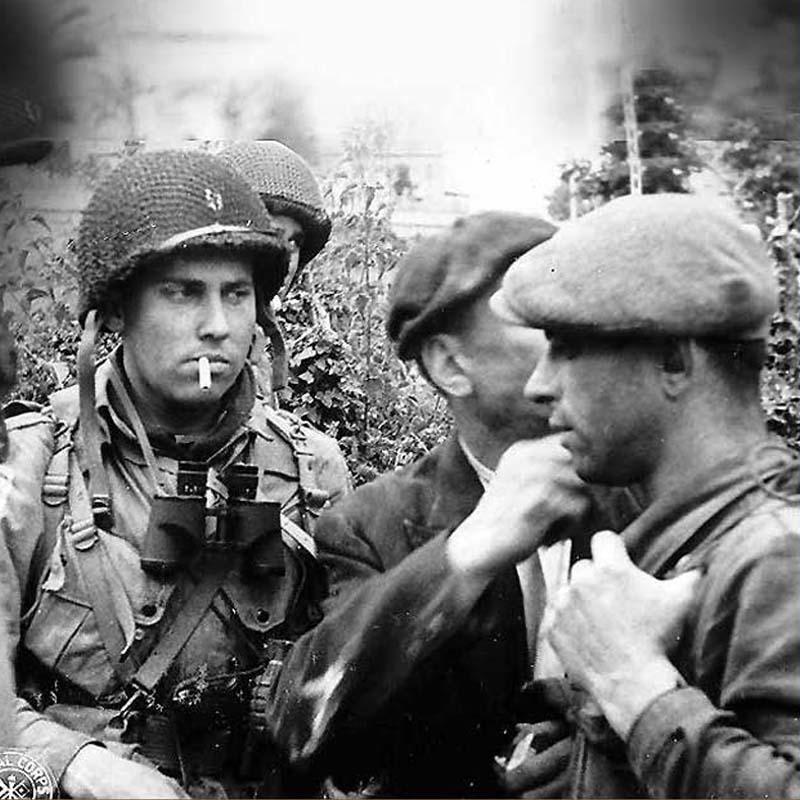
AIRBORNE ASSAULT
To facilitate the Utah landing force's movement into the Cotentin Peninsula, the U.S. 82nd and 101st Airborne Divisions descended on the peninsula by parachute and glider in the early hours of D-Day. The paratroopers were badly scattered. Many were injured and killed during the attack, and much of their equipment was lost, but the brave paratroopers fought fiercely, ensuring that the men landing on the beaches would meet their objective.
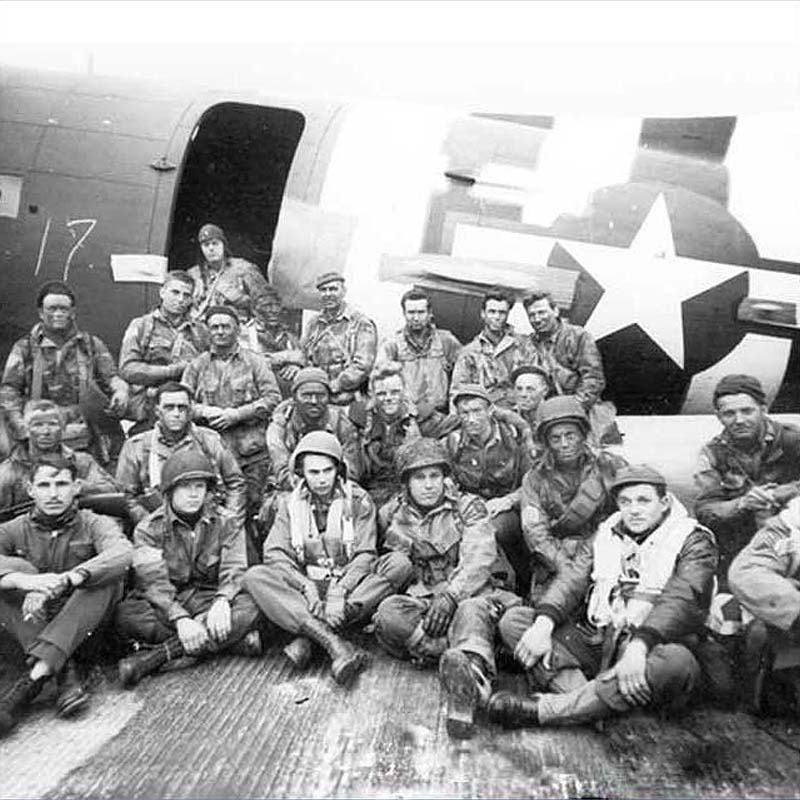
THE LANDINGS
The Normandy beaches were chosen by planners because they lay within range of air cover, and were less heavily defended than the obvious objective of the Pas de Calais, the shortest distance between Great Britain and the Continent. Airborne drops at both ends of the beachheads were to protect the flanks, as well as open up roadways to the interior. Six divisions were to land on the first day; three U.S., two British and one Canadian. Two more British and one U.S. division were to follow up after the assault division had cleared the way through the beach defenses. Disorganization, confusion, incomplete or faulty implementation of plans characterized the initial phases of the landings. This was especially true of the airborne landings which were badly scattered, as well as the first wave units landing on the assault beaches. To their great credit, most of the troops were able to adapt to the disorganization. In the end, the Allies achieved their objective.
Cherbourg Sector
The airborne assault into Normandy, as part of the D-Day allied invasion of Europe, was the largest use of airborne troops up to that time. Paratroopers of the U.S. 82nd and 101st Airborne Divisions, the British 6th Airborne Division, the 1st Canadian Parachute Battalion, and other attached Allied units took part in the assault. Numbering more than 13,000 men, the paratroopers were flown from bases in southern England to the Cotentin Peninsula in approximately 925 C-47 airplanes. An additional 4,000 men, consisting of glider infantry with supporting weapons, medical and signal units were to arrive in 500 gliders later on D-Day to reinforce the paratroopers. The parachute troops were assigned what was probably the most difficult task of the initial operation — a night jump behind enemy lines five hours before the coastal landings.
To protect the invasion zone's western extremity and to facilitate the Utah landing force's movement into the Cotentin Peninsula, the U.S. 82nd and 101st Airborne Divisions descended on the peninsula by parachute and glider in the early hours of D-Day. The mission of the invasion force following the consolidation of a beach head was the capture of Cherbourg, a vital port. The paratroopers were badly scattered. Many were injured and killed during the attack, and much of their equipment was lost, but the brave paratroopers fought fiercely, causing confusion among the German commanders and keeping the German's troops occupied. Their efforts; hampered by harsh weather, darkness and disorganization, and initiative of resourceful Soldiers and leaders, ensured that the Utah Beach assault objectives were eventually accomplished. The British and Canadian attacks also accomplished their primary goal of securing the left flank of the invasion force.
13,000
PARATROOPERS
925
C-47 AIRPLANES
500
GLIDERS
MEDIA
- Background graphic created using image courtesy of the U.S. Air Force.
Utah Beach
Utah Beach was added to the initial invasion plan, almost as an afterthought. The Allies needed a major port as soon as possible, and Utah Beach would put the U.S. VII Corps within 60 kilometers of Cherbourg at the outset. The major obstacles in this sector were not so much the beach defenses, but the flooded and rough terrain that blocked the way north.
23,000
TROOPS
167
CASUALTIES
MEDIA
- Background image: U.S. Army photo.
Omaha Beach
Omaha Beach linked the U.S. and British beaches. It was a critical link between the Cotentin Peninsula, also known as the Cherbourg Peninsula, and the flat plain in front of Caen. Omaha was also the most restricted and heavily defended beach. For that reason, at least one veteran U.S. Division (lst Infantry Division) was tasked to land there. The terrain was difficult. Omaha beach was unlike any of the other assault beaches in Normandy. Its crescent curve and unusual assortment of bluffs, cliffs and draws were immediately recognizable from the sea. It was the most defensible beach chosen for D-Day; in fact, many planners did not believe it a likely place for a major landing. The high ground commanded all approaches to the beach from the sea and tidal flats. Moreover, any advance made by U.S. troops from the beach would be limited to narrow passages between the bluffs. Advances directly up the steep bluffs were difficult in the extreme.
German strong points were arranged to command all the approaches and pillboxes were cited in the draws to fire east and west, thereby enfilading troops while remaining concealed from bombarding warships. These pillboxes had to be taken out by direct assault. Compounding this problem was the allied intelligence failure to identify a nearly full-strength infantry division, the 352nd, directly behind the beach. It was believed to be no further forward than St. Lo and Caumont, 20 miles inland. The V Corps was assigned to this sector. The objective was to obtain a lodgment area between Port-en-Bessin and the Vire River and ultimately push forward to St. Lo and Caumont in order to cut German communications (St. Lo was a major road junction). Allocated to the task were 1st and 29th Divisions, supported by the 5th Ranger Battalion and 5th Engineer Special Brigade.
34,000
ALLIED TROOPS
2,400
AMERICAN CASUALTIES
MEDIA
Gold Beach
Gold Beach was the objective of the 50th Division (Northumbrian) of the British 2nd Army. Its primary task was to seize Arrolnanches and drive inland to seize the road junction at Bayeux, as well as contact U.S. forces on their right and Canadians on their left. The initial opposition was fierce, but the British invasion forces broke through with relatively light casualties and were able to reach their objectives in this sector. A major factor in their success was that the British assault forces were lavishly equipped with armour and "Funnies" of the 79th Armoured Division. The "Funnies" were the specialist vehicles, armed with 290 mm mortars, and designed for tasks such as clearing obstacles or minefields and destruction of large fixed fortifications. Perhaps the most famous is the "Flail" tank, which was Sherman equipped with a large roller to which lengths of chains was attached. These tanks were designed to clear terrain to their front, and detonate mine fields and other booby traps without danger to the tanks or infantry following.
25,000
TROOPS
400
CASUALTIES
MEDIA
- Background image: U.S. Coast Guard photo.
Juno Beach
Juno Beach was the landing area for the 3rd Canadian Division. The Canadians were very concerned about their role in the invasion (as was most of the planning staff) as the memory of 2nd Canadian Division's destruction at Dieppe was still fresh. But many lessons had been learned, and the 3rd Canadian Division, in spite of heavy opposition at Courseulles-sur-Mer, broke through and advanced nearly to their objective, the airfield at Carpiquet, west of Caen. The Canadians made the deepest penetration of any land forces on June 6th, again with moderate casualties.
21,400
TROOPS
1,200
CASUALTIES
MEDIA
- Background iamge: Courtesy of the Imperial War Museum, B 5218.
Sword Beach
Sword Beach was the objective of the British 3rd Infantry Division. They were to advance inland as far as Caen, and line up with British Airborne forces east of the Orne River and Caen Canal. The Orne River bridges had been seized late at night, June 5, by a glider-borne reinforced company commanded by Maj. John Howard. As at the other beaches, British forces penetrated quite a ways inland after breaking the opposition at water's edge. Unfortunately, the objective of Caen was probably asking too much of a single infantry division, especially given the traffic jams and resistance encountered further inland. The 1st Special Service (Commando) Brigade commanded by Lord Lovat, linked up in the morning with Howard's force at Pegasus Bridge on the British left. Fierce opposition from the 21st Panzer and later the 12th SS Panzer division prevented the British from reaching Caen on the 6th. Indeed, Caen was not taken until late June.
29,000
TROOPS
630
CASUALTIES
MEDIA
- Background image: Courtesy of the Imperial War Museum, BU 1185.
Caen Sector
The British 6th Airborne Division area of action was located north of Caen, on the eastern banks of the Orne: paratroopers had to seize the bridges and special points of the region to protect the eastern flank of the Allied invasion zone against German counter-attacks within hours of landing.
British and Canadian forces failed to seize Caen because the Germans threw the weight of their resources and their only available armored division into the defense of the city. Despite this, these Allied troops had established themselves well ashore.
MEDIA
REFERENCES
- Background image: Courtesy of the Imperial War Museum, B 5205.
THE AIRBORNE ASSAULT
Operation Overlord plan would open with an air assault. On the night before the Normandy invasion, the U.S. 82nd and 101st Airborne Divisions would land by parachute and glider near the town of Ste. Mere-Eglise, securing the roads leading from the shoreline and obstructing enemy efforts to reinforce beach defenses. The next morning Bradley's First Army would arrive. The VII Corps would put the U.S. 4th Division ashore on UTAH Beach near les Dunes de Varreville.
As the day of the invasion approached, the weather in the English Channel became stormy. Heavy winds, a five-foot swell at sea, and lowering skies compelled Eisenhower to postpone the assault from 5 to 6 June. Conditions remained poor, but when meteorologists predicted that the winds would abate and the cloud cover rise enough on the scheduled day of the attack to permit a go-ahead, Eisenhower reluctantly gave the command. Expecting casualties of up to 80 percent among the airborne forces, he traveled to an air base at Newbury to bid farewell to the members of the 101st Airborne Division before their tow planes and gliders carried them off to battle.
As planned, airborne units led the invasion. The U.S. 101st and 82nd Airborne Divisions dropped near Ste. Mere-Eglise and Carentan to secure road junctions and beach exits from which the VII Corps could push to capture Cherbourg. Some of the American airborne troops came to ground near their objectives, but most were scattered over a wide area. A number drowned in the flooded lowlands. Others landed amid German positions, where they were killed or captured. In the hours that followed, nevertheless, paratroopers from the 101st succeeded in clearing much of the way for VII Corps' move inland. Meanwhile, the 3rd Battalion, 505th Infantry, of the 82nd Airborne Division captured Ste. Mere-Eglise and cut the main enemy communications cable to Cherbourg.
VIDEO: "D-Day: Through the eyes of an Airborne Paratrooper"
Other units, entangled in the thickets and hedgerows of the region, failed to achieve their objectives, but by their very presence, they sowed confusion in German ranks. Reports began to surface in enemy headquarters all along the line that paratroopers were landing, but little information was available to commanders on the size and meaning of the attack. Was it a probe to test Germany's defenses, a diversion for a larger assault in the Pas de Calais, or the long-awaited invasion itself? The Allies added to the confusion by parachuting dummies wired with firecrackers far to the rear of German positions. The trick drew major enemy units away from the landing zone, where their presence might have considerably damaged the landings.
As dawn neared, bombers began to strike up and down the coast, flying the first of what would become, by the end of the day, more than 11,000 sorties against enemy batteries, headquarters, railroad junctions, and troop concentrations. The gliders Eisenhower had watched depart also arrived at their destinations. Those of the British on the left flank landed on target, as did most of those from the U.S. 101st Airborne Division. Unfortunately, fewer than half of the gliders assigned to the U.S. 82nd Airborne reached their assigned landing zones. The rest lodged in hedgerows, struck German obstructions, or floundered in the swollen marshes. By midmorning, 4,000 men of the 82nd were still unaccounted for, along with 60 percent of the equipment they had carried.
The paratroopers were badly scattered. Many were injured and killed during the attack, and much of their equipment was lost, but the brave paratroopers fought fiercely through the night and the following days, causing confusion among the German commanders and keeping the German troops occupied. Their efforts were hampered by harsh weather, darkness, and disorganization but the initiative of the resourceful Soldiers and leaders among their ranks ensured that the beach assault objectives were eventually accomplished.
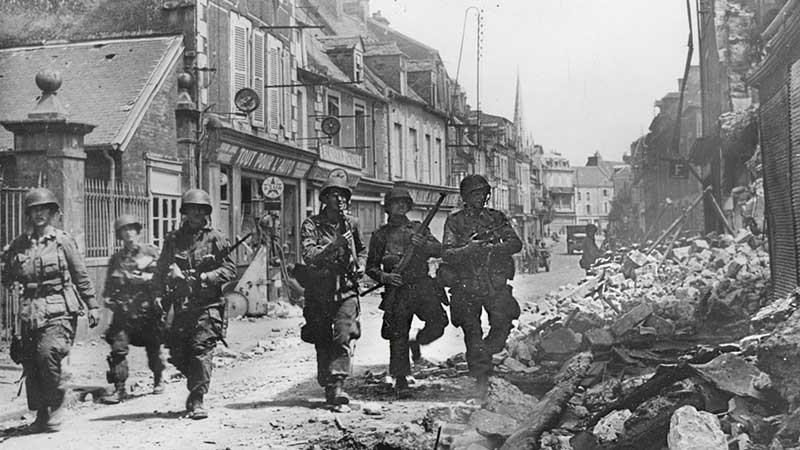
PHOTO: Paratroopers cautiously move through Carentan. Photo courtesy US Army Signal Corps. U.S. Army photo.
- Background graphic created with U.S. Army photos.
D-DAY ALLIED DIVISIONS
U.S. ARMY
-
1st Infantry Division
"The Big Red One"
SEE ALL UNITS -
4th Infantry Division
"Steadfast and Loyal"
SEE ALL UNITS -
29th Infantry Division
"Twenty-nine, let's go!"
SEE ALL UNITS -
82nd Airborne Division
"All The Way!"
SEE ALL UNITS -
101st Airborne Division
"The Screaming Eagles"
SEE ALL UNITS -
Non-Divisional Units
SEE ALL UNITS
U.S. ALLIES
U.S. Army 1st Infantry Division

HHC, 1st Infantry Division
16th Infantry
18th Infantry
26th Infantry
HHB, 1st Division Artillery
5th Field Artillery Battalion
7th Field Artillery Battalion
32nd Field Artillery Battalion
33rd Field Artillery Battalion
1st Signal Company
701st Ordnance Light Maintenance Company
1st Quartermaster Company
1st Engineer Combat Battalion
1st Medical Battalion
1st Counter Intelligence Corps Detachment
1st Military Police Platoon
1st Infantry Division Band
16th Infantry
U.S. Army 4th Infantry Division

HHC, 4th Infantry Division
8th Infantry Division
12th Infantry Division
22nd Infantry Division
HHB, 1st Division Artillery
20th Field Artillery Battalion
29th Field Artillery Battalion
42nd Field Artillery Battalion
44th Field Artillery Battalion
4th Signal Company
704th Ordnance Light Maintenance Company
4th Quartermaster Company
4th Reconnaissance Troop
4th Engineer Battalion
4th Medical Battalion
4th Counter Intelligence Corps Detachment
4th Military Police Platoon
4th Infantry Division Band
Headquarters, Special Troops, 4th Infantry Division
U.S. Army 29th Infantry Division

HHC, 29th Infantry Division
115th Infantry
116th Infantry
175th Infantry
HHB, 29th Division Artillery
110th Field Artillery Battalion
111th Field Artillery Battalion
224th Field Artillery Battalion
227th Field Artillery Battalion
29th Signal Company
729th Ordnance Light Maintenance Company
29th Quartermaster Company
29th Reconnaissance Troop
121st Engineer Combat Battalion
104th Medical Battalion
29th Counter Intelligence Corps Detachment
29th Military Police Platoon
29th Infantry Division Band
Headquarters, Special Troops, 29th Infantry Division
U.S. Army 82nd Airborne Division

HHC, 82nd Airborne Division
325th Glider Infantry
505th Parachute Infantry
HHB, 82d Airborne Division Artillery
319th Glider Field Artillery Battalion
320th Glider Field Artillery Battalion
456th Parachute Field Artillery Battalion
80th Airborne Antiaircraft Artillery Battalion
82d Airborne Signal Company
782d Airborne Ordnance Maintenance Company
407th Airborne Quartermaster Company
307th Airborne Engineer Battalion
307th Airborne Medical Company
Military Police Platoon, 82d Airborne Division
U.S. Army 101st Airborne Division

HHC, 101st Airborne Division
327th Glider Infantry
401st Glider Infantry
502d Parachute Infantry
HHB, 101st Airborne Division Artillery
321st Glider Field Artillery Battalion
907th Glider Field Artillery Battalion
377th Parachute Field Artillery Battalion
81st Airborne Antiaircraft Artillery Battalion
101st Airborne Signal Company
801st Airborne Ordnance Company
426th Airborne Quartermaster Company
326th Airborne Engineer Battalion
326th Airborne Medical Company
101st Counter Intelligence Corps Detachment
Military Police Platoon, 101st Airborne Division
U.S. Army Non-Divisional Units +

Elements of 90th Infantry Division
HHC, 1st Engineer Special Brigade
HHC, First Army
Headquarters, Special Troops, First Army
2nd Ranger Infantry Battalion
HHC, 3rd Armored Group
3rd Auxiliary Surgical Group (18 teams)
4th Cavalry Reconnaissance Squadron, Mechanized
HHC, V Corps
HHB, V Corps Artillery
HHC, 5th Engineer Special Brigade
5th Ranger Infantry Battalion
HHC, 6th Armored Group
HHC, 6th Engineer Special Brigade
Order of Battle Team No.6 (Provisional)
HHC, VII Corps
HHB, VII Corps Artillery
Military Police Platoon, VII Corps
9th Infantry
Photographic Interpreter Team No.10 (Provisional)
HHB, 11th Antiaircraft Artillery Group
Prisoner of War Interrogation Team No.11 (Provisional)
11th Port Company
13th Field Hospital
15th Ordnance Bomb Disposal Squad
HHB, 16th Antiaircraft Artillery Group
Hqs, 17th Field Artillery Observation Battalion
HHB, 18th Antiaircraft Artillery Group
20th Engineer Combat Battalion
23d Ordnance Bomb Disposal Squad
23d Ordnance Bomb Disposal Squad
26th Ordnance Bomb Disposal Squad
30th Chemical Decontamination Company
Photographic Interpreter Team No.32 (Provisional)
33d Chemical Decontamination Company
35th Signal Construction Battalion
37th Engineer Combat Battalion
38th Engineer General Service Regiment (less Band)
42nd Field Hospital
47th Ordnance Bomb Disposal Squad
49th Engineer Combat Battalion
HHD, 50th Medical Battalion
50th Ordnance Company
50th Signal Battalion
56th Signal Battalion
58th Armored Field Artillery Battalion
HHD, 61st Medical Battalion
62nd Armored Field Artillery Battalion
65th Armored Field Artillery Battalion
70th Tank Battalion
81st Chemical Battalion
87th Chemical Battalion
97th Quartermaster Company
HHD, 100th Ordnance Ammunition Battalion
102nd Cavalry Reconnaissance Squadron, Mechanized
HHT, 102nd Cavalry Group, Mechanized
HHB, 109th Antiaircraft Artillery Group
110th Antiaircraft Artillery Gun Battalion
112th Engineer Combat Battalion
116th Antiaircraft Artillery Gun Battalion
Troop B, 125th Cavalry Reconnaissance Squadron, Mechanized
HHD, 131st Quartermaster Battalion
146th Engineer Combat Battalion
147th Engineer Combat Battalion
149th Engineer Combat Battalion
161st Ordnance Platoon
165th Signal Photographic Company
184th Port Company
185th Port Company
186th Field Artillery Battalion
186th Port Company
187th Field Artillery Battalion
187th Port Company
190th Field Artillery Battalion
Hqs, 190th Field Artillery Group
HHD, 191st Ordnance Battalion
197th Antiaircraft Artillery Automatic Weapons Battalion
200th Field Artillery Battalion
Company A, 203d Quartermaster Gas Supply Battalion
205th Counter Intelligence Corps Detachment (Provisional)
207th Counter Intelligence Corps Detachment (Provisional)
208th Medical Dispensary, Aviation
210th Military Police Company
215th Signal Depot Company
226th Port Company
227th Port Company
228th Port Company
229th Port Company
234th Engineer Combat Battalion
237th Engineer Combat Battalion
238th Engineer Combat Battalion
HHD, 251st Ordnance Battalion
254th Engineer Combat Battalion
261st Medical Battalion
270th Port Company
271st Port Company
272rd Port Company
273rd Port Company
279th Port Company
280th Port Company
282nd Port Company
283rd Port Company
286th Joint Assault Signal Company
293rd Joint Assault Signal Company
294th Joint Assault Signal Company
298th Port Company
299th Engineer Combat Battalion
300th Port Company
301st Port Company
302nd Military Police Escort Company
302nd Port Company
303rd Port Company
304th Port Company
305th Port Company
HHD, 306th Quartermaster Battalion
320th Antiaircraft Artillery Balloon Barrage Battalion
336th Engineer Combat Battalion
348th Engineer Combat Battalion
363rd Quartermaster Service Company
391st Medical Collecting Company
392nd Medical Collecting Company
393rd Medical Collecting Company
397th Antiaircraft Artillery Automatic Weapons Battalion (Provisional)
Military Intelligence Interpreter Team No.407 (Provisional)
413th Antiaircraft Artillery Gun Battalion
Military Intelligence Interpreter Team No.416 (Provisional)
Military Intelligence Interpreter Team No.419 (Provisional)
428th Military Police Escort Guard Company
447th Antiaircraft Artillery Automatic Weapons Battalion
449th Military Police Company
453rd Amphibious Truck Company
457th Antiaircraft Artillery Automatic Weapons Battalion
458th Amphibious Truck Company
459th Amphibious Truck Company
462nd Amphibious Truck Company
467th Antiaircraft Artillery Automatic Weapons Battalion
468th Amphibian Truck Company
474th Antiaircraft Artillery Automatic Weapons Battalion
478th Amphibious Truck Company
479th Amphibious Truck Company
HHD, 487th Port Battalion
490th Port Battalion
501st Parachute Infantry
502nd Engineer Light Pontoon Company
HHD, 502nd Port Battalion
503rd Engineer Light Ponton Company
503rd Quartermaster Car Company
506th Parachute Infantry
507th Parachute Infantry
Company A and B, 507th Military Police Battalion
508th Parachute Infantry
Company C, 509th Military Police Battalion
Hqs Det, 518th Port Battalion
519th Port Battalion
526th Ordnance Tank Maintenance Company
531st Engineer Shore Regiment
HHD, 533d Quartermaster Battalion
535th Antiaircraft Artillery Automatic Weapons Battalion
555th Signal Air Warning Battalion
556th Quartermaster Railhead Company
559th Quartermaster Railhead Company
562d Quartermaster Railhead Company
HHD, 577th Quartermaster Battalion
582nd Engineer Dump Truck Company
602nd Engineer Camouflage Battalion
603rd Quartermaster Graves Registration Company
606th Quartermaster Graves Registration Company
610th Engineer Light Equipment Company
612th Engineer Light Equipment Company
616th Ordnance Ammunition Company
HHD, 619th Quartermaster Battalion
625th Ordnance Ammunition Company
635th Tank Destroyer Battalion
637th Ordnance Ammunition Company
643rd Clearing Company
741st Tank Battalion
743rd Tank Battalion
745th Tank Battalion
746th Tank Battalion
747th Tank Battalion
819th Engineer Aviation Battalion
899th Tank Destroyer Battalion
Battery B, 980th Field Artillery Battalion
987th Field Artillery Battalion
991st Engineer Treadway Bridge Company
992d Engineer Treadway Bridge Company
996th Engineer Treadway Bridge Company
RHC, 1106th Engineer Combat Group
HHC, 1121st Engineer Combat Group
HHC, 1171st Engineer Combat Group
1219th Engineer Fire Fighting Platoon
1340th Engineer Combat Battalion
1605th Engineer Map Depot Detachment
2013th Engineer Fire Fighting Platoon
2062nd Aviation Fire Fighting Platoon
3168th Quartermaster Service Company
3207th Quartermaster Service Company
3250th Signal Service Company
3275th Quartermaster Service Company
3466th Ordnance Medium Automotive Maintenance Company
3497th Ordnance Medium Maintenance Company
3565th Ordnance Medium Automotive Maintenance Company
3604th Quartermaster Truck Company
3712th Quartermaster Truck Company
3807th Quartermaster Truck Company
3820th Quartermaster Gas Supply Company
3891st Quartermaster Truck Company
3892nd Quartermaster Truck Company
3939th Quartermaster Gas Supply Company
4042d Quartermaster Truck Company
4141st Quartermaster Service Company
4142d Quartermaster Service Company
4143d Quartermaster Service Company
4144th Quartermaster Service Company
MEDAL OF HONOR RECIPIENTS
Of the over 73,000 American troops that landed in Normandy on D-Day, four U.S. Soldiers received the Medal of Honor for heroic acts that day. The Medal of Honor is the nation's highest medal for valor in combat that can be awarded to members of the armed forces. Click a recipients name below to read their citation.
THE COST
In the course of the daring invasion on June 6, 1944, nearly 160,000 Allied troops landed by sea and air on the heavily fortified French coastline. More than 9,000 Allied soldiers were killed or wounded in Normandy — the majority of them American. Although the toll was heavy, by day's end the Allies had gained a foothold to begin liberating Europe.
160,000
TOTAL ALLIED TROOPS
9,000+
ALLIED CASUALTIES
Resources
Literature
- U.S. Army Center for Military History - Normandy
- U.S. Army Center for Military History - Cross Channel Attack
- U.S. Army Center for Military History - Omaha Beachhead
- U.S. Army Center for Military History - Utah Beach to Cherbourg
- U.S. Army Center for Military History - Small Unit Actions
- DOD Fact Sheet - D-Day: Leadership
- DOD Fact Sheet - D-Day: The Beaches
- DOD Fact Sheet - D-Day: The Supplies
Historical Prints & Photographs
- U.S. Army Center for Military History - The Story in Pictures
- U.S. Army Center for Military History - Normady Photos, Maps, Campaign & Articles
- U.S. European Command - Operation Overlord
- Dwight D. Eisenhower Presidential Library
- Department of Defense - Honoring D-Day Gallery
- Army.mil - D-Day 70th Commemoration Ceremony Image Gallery
Articles
- 5 Things You May Not Know About D-Day
- 84th Infantry Division, WWII Soldier landed on Omaha Beach D-Day | Article | The United States Army
- The Big Red One Returns: D-Day 79 Years Later | Article | The United States Army
- Soldier protected others from air attacks during Normandy invasion
- 4ID Honors the Legacy of D-Day in Europe
- Remembering "Big Red One" heroes of D-Day
- 78 years to the day: Descendants of woman who saved the lives of three paratroopers on D-Day share family's story
- D-Day 75: Ohio National Guard Soldiers who were there
- Soldier to commemorate WWII heroes with D-Day jump
- ANC Remembers One of Thousands Who Sacrificed All on D-Day






.svg)


